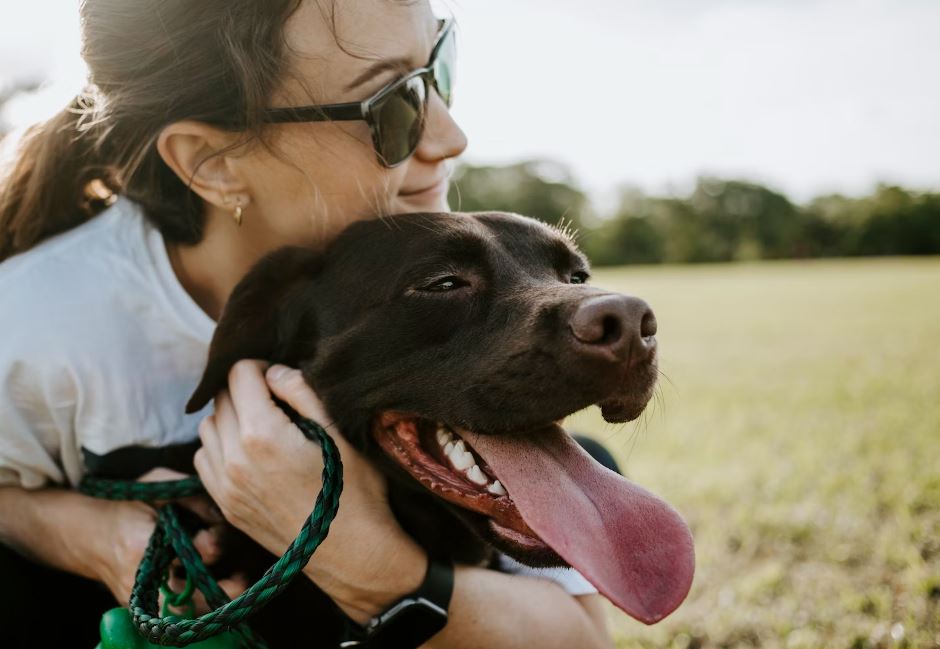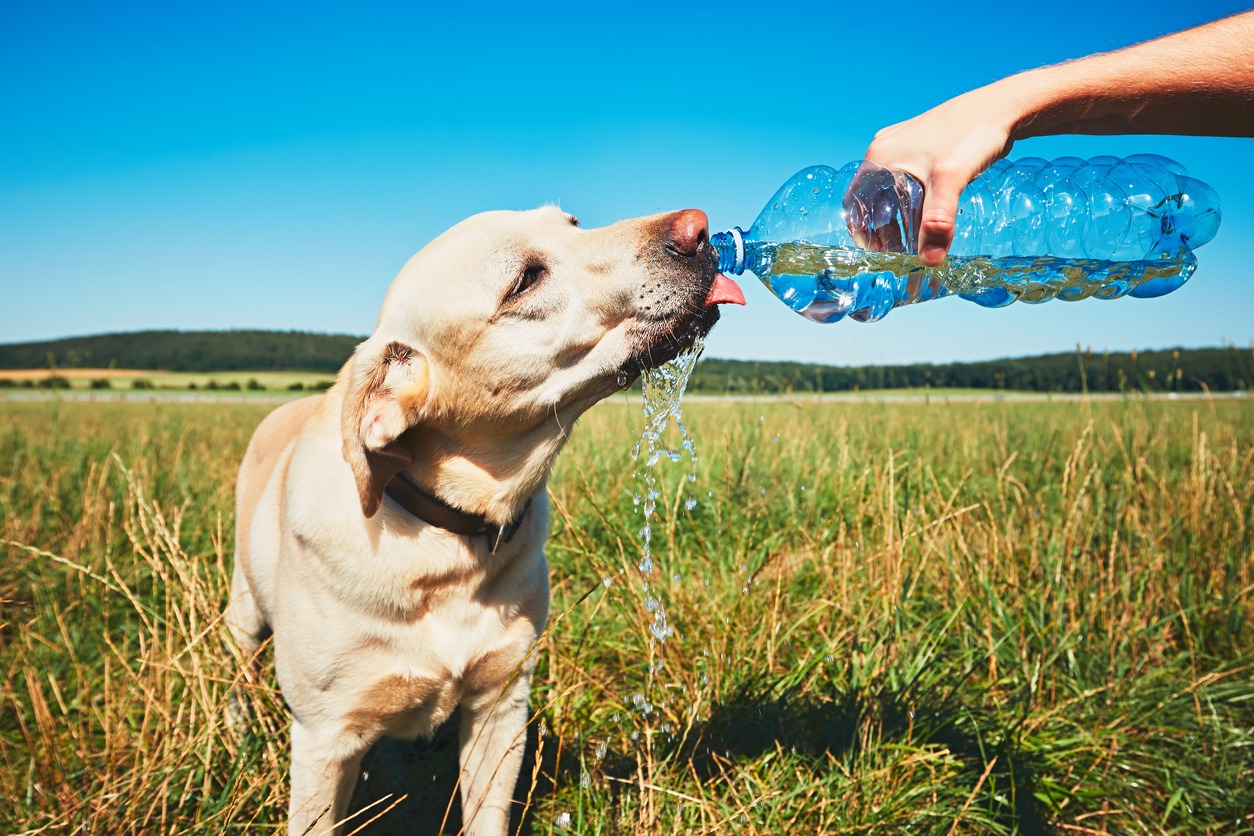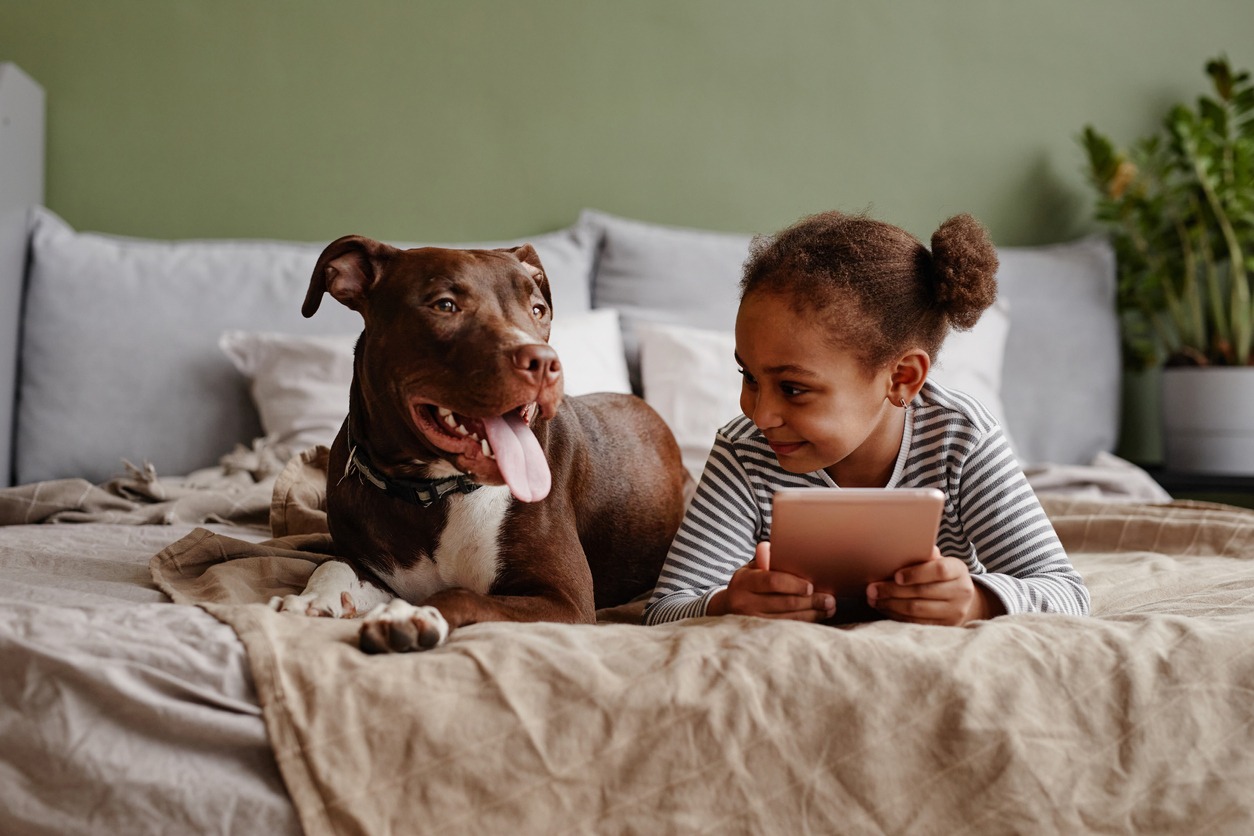Introduction
In a world filled with fast-paced lifestyles, constant technological distractions, and ever-increasing stressors, there exists a source of pure joy and solace that has been a cherished companion to humans for millennia – our furry friends, our beloved pets. Whether they come in the form of a loyal dog, a purring cat, a chirping bird, or any other adorable creature, the bond between humans and their furry companions is a profound and enduring one. This bond transcends mere companionship; it’s a source of unconditional love, laughter, and numerous physical and emotional benefits.
This article explores the multifaceted joys and benefits of having a furry friend. From the unbridled happiness that comes with their antics to the tangible improvements they bring to our overall well-being, the presence of a furry friend enriches our lives in ways that often go beyond words. Let us embark on a journey into the heartwarming world of pet ownership and discover why these loyal, four-legged (or feathered) companions are more than just pets – they are family, therapists, and sources of endless happiness.
The Bond Between Humans and Pets
The bond between humans and their pets is a remarkable and deeply ingrained aspect of our shared history. Dating back thousands of years, this connection has evolved from mere survival partnership to something much more profound and complex. At its core, the human-pet bond is a testament to the unique ability of animals to touch our hearts and souls in ways that few other relationships can replicate.
One of the fundamental aspects of this bond is the unwavering loyalty and companionship that pets provide. Regardless of the species, be it a faithful dog, an independent cat, or even a talkative parrot, pets offer a consistent and nonjudgmental presence in our lives. They don’t care about our flaws or imperfections; they love us unconditionally, providing solace and a listening ear when we need it most.
Moreover, pets have an extraordinary capacity to evoke positive emotions and reduce stress. The simple act of stroking a cat, playing fetch with a dog, or watching fish swim gracefully in an aquarium can trigger the release of oxytocin, a hormone associated with bonding and affection. This biochemical response leads to a profound sense of happiness and relaxation, making pets natural stress-relievers and mood boosters.
The bond between humans and pets is also a source of physical well-being. Numerous studies have shown that pet owners tend to have lower blood pressure, reduced risk of heart disease, and better overall health. The act of caring for a pet encourages physical activity and can provide a sense of purpose, especially for individuals who live alone or struggle with mental health issues.
Furthermore, pets can be a crucial source of social interaction and companionship, particularly for those who may have difficulty connecting with other people. Walking a dog in the park, striking up conversations with fellow pet owners, or simply sharing stories about your pet’s antics can foster a sense of community and belonging.
In times of hardship or loss, pets offer unparalleled comfort and support. They are there to provide a soothing presence during moments of grief or loneliness, helping us navigate through life’s challenges with greater resilience. The loss of a pet can be incredibly painful, but the depth of sorrow often reflects the profound love and connection that existed.
The bond between humans and pets is a testament to the power of love, empathy, and shared experiences. It transcends species boundaries and enriches our lives in immeasurable ways. Whether as loyal companions, emotional healers, or sources of boundless joy, our furry, feathered, or scaly friends occupy a special place in our hearts, reminding us of the profound beauty of the human-pet connection.
The Growing Trend of Pet Ownership
The trend of pet ownership has been steadily growing in recent years, with more people than ever before welcoming animals into their homes as beloved companions. This surge in pet ownership can be attributed to a variety of factors, reflecting the evolving needs and desires of individuals and families in contemporary society.
1. Companionship and Emotional Support
As modern life becomes increasingly fast-paced and stressful, people are seeking emotional solace and companionship. Pets, with their unwavering loyalty and affection, provide a reliable source of comfort and support. Many individuals, especially those living alone or away from family, find solace in the constant presence of a furry friend.
2. Mental Health Awareness
There’s a growing awareness of the positive impact pets can have on mental health. Studies have shown that petting a dog or spending time with a cat can reduce stress, anxiety, and depression. As mental health concerns become more prevalent, people are turning to pets as a natural way to alleviate these issues.
3. Changing Demographics
Shifts in demographics, including delayed marriage and family planning, have led to more people living alone or in smaller households. In such situations, pets can fill the void of companionship, offering a sense of purpose and structure to daily life.
4. Urbanization
The global trend towards urbanization has resulted in smaller living spaces and reduced access to nature. This has paradoxically fueled the desire for pets, as city dwellers seek to bring a touch of the natural world into their homes.
5. Social Media and Pop Culture
The proliferation of social media platforms has allowed people to share their pet’s adorable moments and antics with a global audience. This trend has contributed to the perception that pet ownership is not only enjoyable but also trendy and socially appealing.
6. Health and Fitness
Pet ownership encourages physical activity, as pets require regular exercise. This aligns with the growing emphasis on health and wellness in today’s society, making pets an attractive option for those looking to stay active and fit.
7. Increased Availability
The pet industry has expanded to meet growing demand, offering a wider variety of breeds, pet products, and services. This accessibility has made it easier for individuals and families to find the right pet to fit their lifestyles.
8. Remote Work and Flexibility
The shift towards remote work and flexible schedules due to technological advancements and the COVID-19 pandemic has made it more feasible for people to care for and spend time with their pets during the day, further promoting pet ownership.
9. Environmental Awareness
Some individuals are turning to pets as a way to engage with and support conservation efforts. They adopt exotic or endangered species, such as reptiles or birds, to learn more about and contribute to the protection of these animals.
10. Community and Social Bonding
Pet ownership fosters a sense of community and social bonding. Pet owners often connect with others who share their love for animals through pet clubs, online forums, and local events, creating a supportive network.
The growing trend of pet ownership reflects the changing dynamics of our society. Pets have become more than just animals we care for; they are cherished family members, emotional anchors, and sources of joy in an increasingly complex world. As the benefits of pet ownership continue to be recognized, it’s likely that this trend will persist and evolve in the years to come.
Emotional and Psychological Benefits
The emotional and psychological benefits of pet ownership are vast and well-documented. Whether it’s through the release of feel-good hormones, the companionship they offer, or the structure they bring to daily life, pets have a unique ability to improve mental and emotional well-being. Their unconditional love and nonjudgmental nature make them invaluable allies in the journey toward better mental health and overall happiness.
Combating loneliness and depression
Loneliness and depression are significant mental health concerns that affect millions of people worldwide. Pet ownership can be a powerful and therapeutic tool in the battle against these emotional challenges. Here’s how pets can help combat loneliness and depression:
Companionship. Loneliness often stems from a lack of meaningful social connections. Pets provide constant companionship, offering a nonjudgmental and loving presence. Their mere presence can help alleviate feelings of isolation.
Unconditional Love. Pets provide unwavering affection and acceptance. They don’t care about your flaws or past mistakes, providing a source of emotional support that is consistent and reassuring.
Emotional Bond. The bond between a pet and their owner is deep and genuine. This bond fosters a sense of connection and attachment, reducing feelings of detachment and loneliness.
Routine and Purpose. Caring for a pet requires a daily routine, which can be particularly beneficial for individuals struggling with depression. Having a reason to get out of bed and tend to a pet’s needs can provide a sense of purpose.
Physical Activity. Pets offer unconditional love and acceptance. Engaging in physical activities with your pet, such as walking or playing, releases endorphins and boosts your mood.
Mindfulness and Distraction. Interacting with a pet can be a form of mindfulness, allowing you to be present in the moment. The simple act of petting a cat or watching fish swim can distract from negative thoughts and reduce rumination.
Reduced Stress. The physical presence of a pet has been shown to reduce stress and anxiety. Petting a dog, for example, can lower cortisol levels and promote relaxation.
Social Interaction. Owning a pet can increase social interaction. Walking a dog in the park or chatting with fellow pet owners at the vet’s office can help combat social isolation and foster new friendships.
Empathy and Responsibility. Caring for a pet teaches empathy and responsibility, which can be particularly valuable for individuals struggling with depression. It shifts the focus from one’s own difficulties to the needs of the pet.
Supportive Presence. Animals are great listeners. They offer a comforting and nonjudgmental presence when you need someone to talk to, even if it’s just sharing your thoughts or concerns with them.
Therapeutic Benefits. A growing number of rehabilitation settings are using pets. Animal-assisted therapy can be highly effective in helping individuals manage depression and loneliness, especially in clinical settings.
Motivation for Self-Care. Knowing that your pet relies on you for care can motivate individuals to take better care of themselves. This can include maintaining personal hygiene, eating regular meals, and seeking necessary medical care.
It’s important to note that while pets can offer substantial emotional and psychological benefits, they are not a substitute for professional mental health treatment when needed. If you or someone you know is struggling with severe depression or loneliness, it’s essential to seek support from a mental health professional. Nevertheless, the companionship and therapeutic value of pets make them wonderful allies in the ongoing battle against these challenging emotional issues.
Offering unconditional love and affection
One of the most remarkable and heartwarming aspects of pet ownership is the unwavering, unconditional love and affection that pets offer to their human companions. This unique bond goes beyond words and transcends the boundaries of species, creating a deeply emotional and meaningful connection. Here’s why the unconditional love and affection of pet ownership are so cherished:
Nonjudgmental Companionship. Pets don’t judge people based on appearance, shortcomings, or flaws. They accept us wholeheartedly for who we are, providing a sense of belonging and self-acceptance.
Consistent Presence. Regardless of life’s ups and downs, pets are a constant and reassuring presence. Their loyalty remains steadfast, offering comfort during times of joy and solace during times of sorrow.
Emotional Support. Pets have an uncanny ability to sense our emotions and offer solace when we’re feeling down. Whether it’s curling up beside us when we’re sad or excitedly greeting us when we’re happy, their emotional attunement is a source of comfort.
Unconditional Love. The love that pets give is unconditional and unreserved. They don’t love us because of what we can provide or achieve; they love us simply because we are their human companions.
Stress Reduction. Interacting with pets has been shown to reduce stress and anxiety. The release of oxytocin, a bonding hormone, when we pet our dogs or cats promotes a calming effect and a feeling of emotional security.
Boosted Self-Esteem. The affection and positive attention that pets provide can boost our self-esteem and self-worth. Their unwavering love reminds us that we are deserving of love and care.
Emotional Healing. Many people find emotional healing and catharsis in the presence of their pets. They can be a source of comfort during times of grief, loss, or emotional turmoil.
Joyful Moments. Pets have a knack for creating moments of pure joy and laughter. Their playful antics, silly behavior, and joyful enthusiasm can lift our spirits and remind us to find joy in the little things.
Unconditional Forgiveness. Pets are quick to forgive. Even if we scold them or have a bad day, they readily forgive and seek our companionship, teaching us valuable lessons in forgiveness and resilience.
A Sense of Purpose. Caring for a pet provides a sense of purpose and responsibility. Knowing that our furry friends rely on us for their well-being can give life a sense of meaning and structure.
Improved Mental Health. Studies have shown that pet ownership can have a positive impact on mental health, reducing symptoms of depression and anxiety. The presence of a loving pet can offer a sense of hope and connection.
Unconditional Friendship. Perhaps most importantly, pets offer us a true and enduring friendship. They are not just animals we share our homes with; they become cherished members of our families, offering a bond that is both profound and enduring.
The unconditional love and affection of pet ownership are a testament to the unique and transformative power of the human-animal bond. The love we receive from our pets is a reminder of the beauty of connection, the simplicity of love, and the enduring loyalty of our furry, feathered, or scaled companions.
Enhancing mood and well-being
Pet ownership has a remarkable ability to enhance the mood and overall well-being of individuals and families. The positive impact of having a furry friend in your life goes far beyond simple companionship. Here are some ways in which pet ownership can uplift your mood and promote well-being:
Increased Happiness. Interacting with pets often brings joy and laughter. Their playful antics, wagging tails, and endearing quirks can instantly brighten your day, leading to increased happiness and positive emotions.
Stress Reduction. Spending time with pets, whether it’s petting a cat or going for a walk with a dog, triggers the release of oxytocin, a hormone that helps reduce stress and anxiety. The act of caring for a pet can also provide a calming routine.
Lowered Blood Pressure. Studies have shown that petting a dog or cat can lead to a decrease in blood pressure, which can contribute to better cardiovascular health. This physical benefit is a direct result of the calming influence of pets.
Elevated Mood. The presence of a pet can elevate your mood and help alleviate symptoms of depression. The companionship and unconditional love they offer create a sense of emotional stability and comfort.
Increased Physical Activity. Dogs in particular need regular exercise. This encourages pet owners to stay active, promoting better physical fitness and overall well-being.
Social Interaction. Owning a pet often leads to increased social interactions. Whether you’re chatting with fellow pet owners at the park or participating in pet-related events, these connections can boost your social well-being.
Having a Purpose. Caring for a pet provides a sense of purpose and responsibility. Knowing that a living being relies on you for its well-being can give your life a greater sense of meaning and direction.
Alleviation of Loneliness. Pets are loyal companions who are always there for you. This can be especially comforting for individuals who may feel lonely or isolated, offering a sense of connection and belonging.
Mindfulness and Relaxation. Interacting with pets can be a form of mindfulness, helping you stay in the present moment. Watching fish swim, for instance, can be a soothing and meditative experience.
Emotional Support. Pets are attuned to their owners’ emotions and can offer emotional support during times of stress, grief, or anxiety. Their comforting presence can be a source of solace.
Boosted Immunity. Some research suggests that exposure to pet dander and microbes may strengthen the immune system and reduce the risk of allergies and asthma in children.
Positive Routine. The daily routine of caring for a pet can provide structure and stability in your life, which can have a positive impact on your mental and emotional well-being.
The bond between pet and owner is a powerful source of emotional, physical, and psychological well-being. The love, companionship, and the simple joys that pets bring into our lives have a transformative effect, promoting a happier and healthier existence. The positive impact of pet ownership is a testament to the enduring and mutually beneficial relationship between humans and their beloved animal companions.
Social Benefits of Having a Pet
The social benefits of having a pet are far-reaching. From providing companionship and emotional support to fostering social interactions and a sense of community, pets enrich our lives in meaningful ways. Their presence encourages social engagement and can contribute to a happier and more connected society.
Fostering relationships and friendships
Building connections and friendships can be significantly enhanced through the presence of pets. Here’s how pet ownership fosters social bonds and facilitates meaningful connections with others:
Shared Interests. Owning a pet automatically creates a shared interest with other pet owners. Whether it’s discussing the best training techniques, sharing grooming tips, or swapping stories about pet antics, these common interests provide a foundation for connection.
Pet-Friendly Environments. Many places, such as dog parks, pet stores, and pet-friendly cafes, are designed to accommodate both pets and their owners. These environments naturally encourage interactions with fellow pet enthusiasts.
Casual Conversations. Walking a dog or spending time at a park with a pet often leads to casual conversations with other pet owners and passersby. These interactions can evolve into friendships over time.
Social Activities. Pet-related events and activities, such as dog training classes, agility competitions, or charity fundraisers, provide opportunities to meet like-minded individuals who share a passion for animals.
Online Communities. The internet has created a vast network of online communities and forums where pet owners can connect, share advice, and build friendships with people from around the world who have similar pets or interests.
Support Networks. During challenging times, such as dealing with a pet’s illness or loss, pet owners often turn to support networks and online groups for emotional support and understanding. These networks can lead to lasting friendships with people who have experienced similar situations.
Volunteer Opportunities. Getting involved in animal welfare organizations and volunteering at animal shelters or rescue groups can lead to connections with individuals who are passionate about making a difference in the lives of animals.
Pet Playdates. Organizing playdates for pets is not only enjoyable for the animals but also provides an opportunity for owners to connect and socialize.
Empathy and Bonding. Sharing stories and experiences about the joys and challenges of pet ownership can create strong bonds based on empathy and understanding.
Random Acts of Kindness. Acts of kindness, such as helping a fellow pet owner in need or offering pet-sitting services, can lead to the formation of meaningful friendships.
Intergenerational Connections. Owning a pet can facilitate connections between people of different age groups, as pets often appeal to both children and adults. Grandparents, parents, and children can bond over the care and love of a family pet.
Pets serve as social catalysts, bringing people together through shared interests, common experiences, and a mutual love for animals. These connections can evolve into lasting friendships that extend beyond the world of pets, enriching the lives of pet owners and contributing to a sense of community and belonging.
Enhancing communication and empathy
Pet ownership has a profound impact on enhancing communication and empathy in individuals. Through their non-verbal communication cues and the development of a deep emotional connection, pets teach their owners to be more attuned to non-verbal cues, foster empathy, and cultivate effective listening skills. The responsibility and accountability that come with pet ownership also contribute to improved communication and conflict resolution skills. Additionally, the non-judgmental companionship offered by pets creates a safe space for open communication, boosting self-confidence and trust-building abilities. These benefits not only enrich the relationship between pet owners and their animals but also extend to interactions with other people, ultimately promoting more compassionate and empathetic human connections.
Responsibilities and Commitment
Understanding the needs of pets
Understanding the needs of pets is a cornerstone of responsible pet ownership. It goes beyond providing mere companionship; it involves a profound commitment to ensuring the physical, emotional, and mental well-being of our animal companions. This understanding is essential because, as pet owners, we are entrusted with the welfare of these sentient beings, and it is our moral and ethical duty to meet their needs.
Nutrition
The cornerstone of a pet’s health and vitality is proper nutrition. Each species and breed has its own dietary requirements, and it is crucial to provide a balanced diet that meets these needs. Failing to do so can lead to malnutrition, obesity, and a host of health problems. Recognizing the importance of nutrition means diligently researching and selecting appropriate foods, monitoring portion sizes, and addressing any dietary restrictions or allergies.
Water
For pets, having access to clean, fresh water is a need. It is essential for hydration, digestion, and regulating body temperature. Neglecting this need can quickly lead to dehydration, which is not only uncomfortable but can also be life-threatening.
Shelter
Pets require a safe and comfortable living environment. Whether it’s a cozy indoor space for cats or dogs or a well-structured outdoor enclosure for rabbits or chickens, shelter is vital. Adequate shelter protects pets from harsh weather conditions and provides them with a sense of security. Recognizing this need means understanding the climate and specific habitat requirements of the pet’s species.
Healthcare
Pets, like humans, require regular healthcare to thrive. This includes routine check-ups, vaccinations, preventative treatments, and prompt medical attention when they are unwell. Understanding this need involves finding a trustworthy veterinarian and being diligent about healthcare appointments.
Exercise and Stimulation
Physical activity and mental stimulation are essential to a pet’s well-being. Dogs need daily walks and playtime, cats require opportunities for hunting and exploration, and even smaller animals like hamsters benefit from exercise wheels and toys. Recognizing this need means making time for regular exercise and mental enrichment activities.
Social Interaction
Pets are social creatures, and they thrive on companionship and interaction with their human caregivers. Loneliness can lead to behavioral issues and depression in pets. Understanding this need means providing companionship, attention, and affection, as well as considering the pet’s socialization requirements with other animals.
Training and Socialization
Proper training and socialization are essential for pets to be well-adjusted members of the family. Understanding this need involves investing time and patience to teach basic commands, address behavioral issues, and ensure positive interactions with people and other animals.
Grooming
Grooming and hygiene care vary depending on the pet’s breed and species. Some pets require regular brushing and grooming, while others may need bathing, nail trimming, or dental care. Understanding this need means recognizing the specific grooming requirements of the pet and maintaining their cleanliness and comfort.
Safety and Protection
Pets must be kept safe from hazards and potential dangers. This involves providing secure containment, appropriate identification (such as tags or microchips), and safeguarding against toxic substances or objects that could harm them.
Lifelong Commitment
Recognizing the need for a lifelong commitment is perhaps the most critical aspect of pet ownership. Pets are not disposable; they are sentient beings that rely on us for their entire lives. Understanding this need means being prepared for a long-term relationship that spans many years, if not decades.
Understanding and meeting the needs of pets is a profound responsibility. It requires education, diligence, and unwavering commitment to ensuring the well-being of these beloved members of our families. Responsible pet ownership is not merely about providing food and shelter; it is about nurturing a relationship built on trust, care, and respect for the unique needs and characteristics of each individual pet. When we recognize and fulfill these needs, we create a harmonious and fulfilling life for our animal companions, forging bonds that are deeply rewarding for both them and us.
Ensuring their well-being and happiness
Ensuring the well-being and happiness of our beloved pets is not just a responsibility; it’s a heartfelt commitment that enriches both our lives and the lives of our furry companions. The journey of responsible pet ownership involves a profound understanding of their needs, emotions, and unique personalities, and it requires a continuous effort to provide a fulfilling and joyful life for them.
Proper Nutrition
The foundation of a healthy and contented pet is a proper diet. Just as humans need balanced nutrition, our pets require a diet that meets their specific species, age, and activity level. Ensuring their well-being means researching the best food options, monitoring portion sizes, and addressing any dietary restrictions or allergies. A well-fed pet is not only physically healthy but also happier and more energetic.
Exercise and Mental Stimulation
Pets, whether they have four legs or feathers, need both physical activity and mental stimulation to thrive. Regular exercise keeps them fit and helps prevent behavioral issues borne out of boredom. Likewise, offering engaging toys, puzzles, and interaction provides mental exercise that keeps their minds sharp and curious. An active and engaged pet is a happy pet.
Healthcare and Regular Check-ups
Maintaining the well-being of our pets involves regular veterinary care. Just like humans, pets need routine check-ups, vaccinations, and preventative treatments to stay healthy. Prompt attention to any health concerns is vital to their overall happiness, as discomfort or illness can greatly affect their quality of life.
Grooming and Hygiene
Depending on the breed and species, pets may require grooming and hygiene care. Regular brushing, nail trimming, and dental care are not just for aesthetics but also for their comfort and health. A well-groomed pet feels better and is often more content.
Social Interaction and Companionship
Many pets are inherently social creatures, relying on companionship and interaction with their human caregivers. Loneliness can lead to anxiety and even depression. Ensuring their happiness means spending quality time with them, offering affection, and engaging in play. Often, the best present you can give them is simply your presence.
Training and Positive Reinforcement
Training your pet is not just about obedience but also about building trust and understanding. Positive reinforcement techniques, such as praise and rewards, are effective in fostering good behavior and a strong bond between you and your pet.
Safety and Comfort
A happy pet is a safe pet. Ensure their environment is secure, free from hazards, and comfortable. Adequate shelter and protection from extreme weather conditions are essential. Furthermore, make sure your pet has a safe and quiet place to retreat when feeling overwhelmed.
Routine and Consistency
Establishing routines for feeding, exercise, and sleep provides a sense of security and predictability for your pet. Consistency in your interactions and expectations can contribute to a calm and contented pet.
Emotional Support and Understanding
Our pets have emotions too. They may experience fear, anxiety, or stress in certain situations. Being attuned to their emotions and providing comfort during these times demonstrates understanding and empathy.
Consider Their Age and Special Needs
Pets, like humans, have changing needs as they age. Pay attention to age-related issues such as arthritis, reduced mobility, and dietary changes, and adjust your care accordingly. Special-needs pets may require extra attention and accommodations.
Ensuring the well-being and happiness of our pets is a lifelong commitment. It’s a journey of love, understanding, and continuous effort. When we provide for their physical, emotional, and mental needs, we not only fulfill our responsibilities as pet owners but also nurture a bond that brings immeasurable joy and fulfillment to our lives. A happy pet is a cherished companion, and their well-being is a testament to our love and care.
Choosing the Right Pet for Your Lifestyle
Choosing the right pet for your lifestyle is a decision of great significance, one that can lead to years of companionship, joy, and fulfillment. It’s a choice that should be made with careful consideration, as it impacts not only your life but also the well-being of the animal you bring into your home. To make an informed decision, several crucial factors must be weighed.
Lifestyle and Activity Level
Your lifestyle plays a pivotal role in determining the type of pet that will thrive in your home. If you lead an active, outdoorsy life, a dog that enjoys exercise and adventure may be a perfect match. On the other hand, if you have a quieter, more sedentary lifestyle, a cat or a small pet like a rabbit or guinea pig may be a better fit.
Space and Living Arrangements
Consider the size of your living space. Dogs typically require more room to roam, while cats and some smaller pets are more adaptable to smaller spaces. Additionally, your living arrangements, such as whether you rent or own, may have restrictions on pet size or type.
Time Commitment
Different pets have varying time requirements. Dogs, for example, need daily exercise, attention, and companionship. Cats are generally more independent but still require social interaction and care. Smaller pets may need less attention but still necessitate regular care.
Allergies and Health Considerations
Allergies can be a significant factor in pet selection. Some individuals are allergic to pet dander or certain species, so it’s essential to consider potential health issues and allergies within your household.
Financial Responsibility
Owning a pet comes with financial responsibilities, including food, grooming, veterinary care, and other expenses. Be prepared for the costs associated with pet ownership and ensure your budget can accommodate these needs.
Long-Term Commitment
Most pets live for several years or even decades. Ensure that you are ready for a long-term commitment to the well-being and care of your pet. Consider how your life may change in the future and whether you can continue to meet your pet’s needs.
Pet Compatibility
If you have other pets, consider how a new pet will fit into your existing family. Some pets may be more compatible with others, while certain species may have natural instincts that clash with those of other animals.
Breed and Species Characteristics
Research the characteristics and temperaments of different breeds and species. Some dogs are known for their energy and playfulness, while others are more relaxed. Cats have distinct personalities that can vary by breed. Understanding these differences is crucial in finding the right fit.
Training and Socialization
Recognize that most pets require training and socialization to become well-adjusted companions. Be prepared to invest time and effort in this aspect of pet ownership.
Choosing the right pet for your lifestyle is a decision that deserves thoughtful contemplation. It’s not just about what you want but also about what is best for the animal you bring into your home. By considering factors such as your activity level, living space, and long-term commitment, you can make an informed choice that results in a fulfilling and harmonious relationship between you and your pet. Remember that responsible pet ownership is a commitment to the well-being and happiness of your chosen companion.
Factors to consider: size, temperament, and care needs
When choosing the right pet for your lifestyle, three essential factors to consider are the pet’s size, temperament, and care needs. These factors play a significant role in determining how well a pet will fit into your life and whether you can meet its requirements effectively.
Size
- Living Space. Consider the size of your living space. Larger pets, such as dogs or large birds, may require more room to move around comfortably. Smaller living spaces may be better suited for cats, small dogs, or smaller caged pets like hamsters or guinea pigs.
- Outdoor Access. If you have outdoor space, think about whether it’s suitable for a larger pet to roam or if it’s better suited for a smaller animal. Larger dogs, for instance, may require a fenced yard for exercise.
- Travel Considerations. If you travel frequently, a smaller pet may be more convenient to take with you or arrange for their care during your absence.
Temperament
- Personality. Different pets have varying temperaments. Some are more active and playful, while others are calm and laid-back. Consider your own personality and lifestyle in relation to the pet’s temperament. For example, if you’re active and enjoy outdoor activities, a high-energy dog may be a great match. On the other hand, if you prefer a quieter, low-maintenance pet, a calm cat or a reptile might be more suitable.
- Compatibility. Think about how the pet’s temperament aligns with your household. If you have other pets or children, assess whether the new pet’s personality will mesh well with existing family members.
Care Needs
- Time Commitment. Evaluate the amount of time you can realistically dedicate to pet care. Some pets, like dogs, require daily exercise, grooming, and attention. Others, like certain reptiles, may have lower maintenance needs.
- Financial Responsibility. Different pets come with varying financial responsibilities. Consider the cost of food, medical care, grooming, and any other expenses associated with pet ownership. Ensure that your budget can accommodate these needs.
- Special Care Requirements. Some pets have specific care requirements. For instance, exotic pets may have unique dietary needs, and certain breeds of dogs may require specialized grooming. Be prepared to meet these needs.
- Training and Socialization. Consider the pet’s training and socialization needs. Dogs typically require training, socialization, and exercise to thrive. Cats may need litter box training and enrichment. Smaller pets may need appropriate handling and socialization as well.
Size, temperament, and care needs are critical factors to evaluate when choosing the right pet for your lifestyle. By matching these factors with your living situation, personality, and available resources, you can make an informed decision that leads to a harmonious and fulfilling relationship between you and your chosen pet. Responsible pet ownership begins with selecting a pet that aligns with your capabilities and lifestyle, ensuring a happy and healthy life for both you and your new companion.
Adopting vs. buying: making an informed decision
Adopting a pet from a shelter or rescue organization and buying one from a breeder or pet store are two different approaches to bringing a new animal into your home. Making an informed decision between adoption and purchase involves considering several important factors:
1. Ethical Considerations
Adoption. Choosing to adopt a pet can be viewed as an ethical choice. It often means giving a home to an animal in need, potentially saving them from euthanasia in overcrowded shelters. Adopting contributes to reducing the homeless pet population.
Purchase. Buying a pet, especially from a pet store or breeder, may be perceived as supporting the pet industry, which sometimes includes unethical breeding practices and overpopulation.
2. Cost
Adoption. Generally speaking, adoption fees are less expensive than pet purchase expenses. These fees often cover vaccinations, spaying or neutering, and sometimes even microchipping.
Purchase. Buying a pet from a breeder or pet store can be more expensive, as it may include the cost of the pet itself, initial vaccinations, and other expenses.
3. Health and History
Adoption. Shelter and rescue pets often come with a known medical history. They may have been spayed or neutered, vaccinated, and checked for common health issues.
Purchase. Pets purchased from breeders may have known genetic lineage and health histories. However, it’s essential to research and ensure the breeder practices responsible breeding.
4. Breed and Specific Traits
Adoption. While shelters and rescues often have a variety of breeds and mixed-breed pets, it may be challenging to find specific breeds or traits. However, it’s worth noting that many lovable and healthy pets are mixed breeds.
Purchase. If you have a specific breed or trait in mind, buying from a reputable breeder may be necessary. Ensure that the breeder adheres to ethical breeding standards and prioritizes the health and well-being of their animals.
5. Availability and Timing
Adoption. The availability of specific pets in shelters and rescues can vary by location and time. It may require patience to find the right match.
Purchase. Purchasing from a breeder can provide more immediate access to specific breeds or litters, but this should not be rushed. It’s crucial to research breeders thoroughly.
6. Personality and Compatibility
Adoption. Shelters and rescues often have a wealth of information about the pet’s behavior and temperament, helping you find one that matches your lifestyle and preferences.
Purchase. Responsible breeders may provide insights into a pet’s personality, but it’s essential to spend time with the animal to ensure compatibility.
7. Long-Term Responsibility
Adoption. Adopting a pet is a long-term commitment to providing a loving and caring home for the rest of their life. Consider if you’re ready for this commitment.
Purchase. Buying a pet also entails a long-term commitment. Responsible breeders may require you to sign a contract outlining your responsibilities.
Both adoption and purchase can lead to loving and fulfilling relationships with pets. Making an informed decision involves considering ethical, financial, and practical factors, as well as your specific preferences and lifestyle. Whichever option you choose, it’s crucial to prioritize the welfare and well-being of the animal and ensure that the source, whether a shelter, rescue organization, or breeder, adheres to ethical and responsible standards.
Conclusion
In the embrace of these furry pets, you will find not only comfort and happiness but also a profound sense of purpose and belonging. They are family, confidants, therapists, and sources of endless delight. The joy and benefits of having a furry friend are not only experienced, they are felt deep within our hearts, where the warmth of their love continues to grow and flourish. In return, give them care, attention, and unwavering devotion, forging a bond that is as enduring as it is beautiful. In the presence of these furry friends, be reminded that sometimes, the simplest joys in life are the most precious, and the most profound bonds are those that transcend words.






